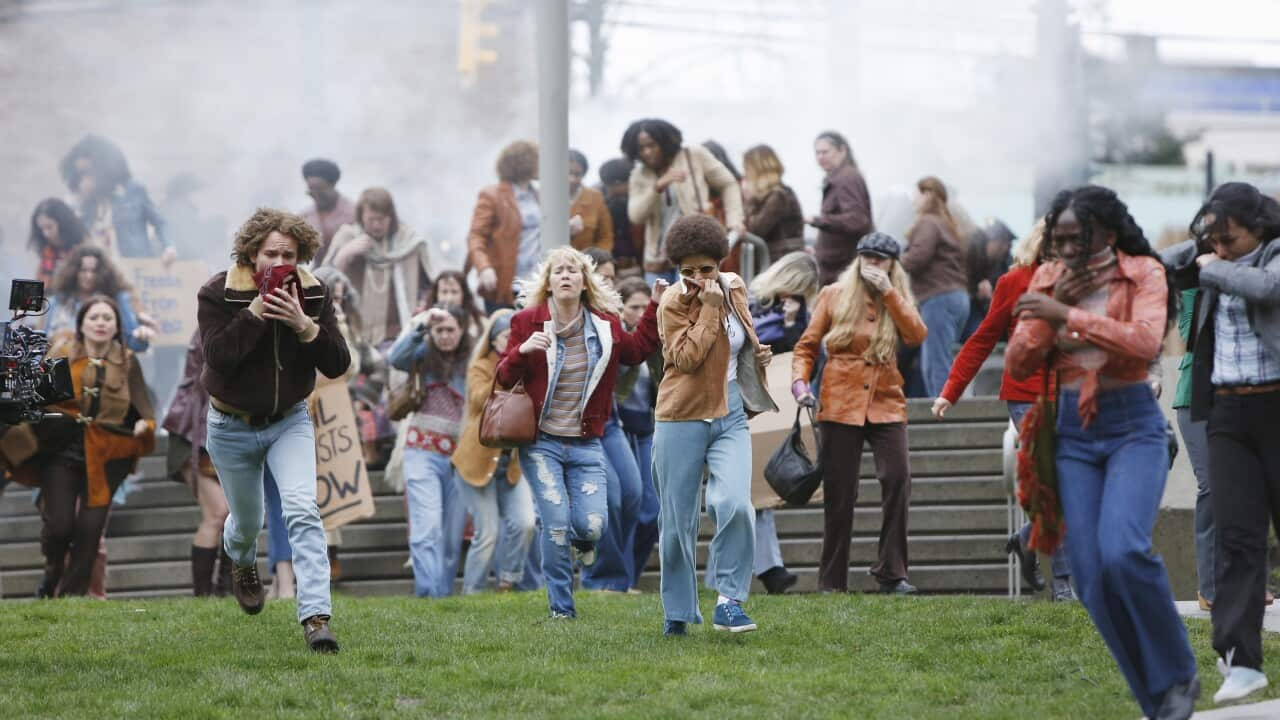One of the driving motivations for Dustin Lance Black as he worked on the LGBT+ civil-rights mini-series was the importance of sharing LGBT+ history with a younger generation.
The 42-year-old's interviews about the series are peppered with frustrations about the lack of appreciation and understanding young people have with the struggles of their older peers.
“It’s a torch to be passed from these folks and the generation that came before to a new generation, calling them to the fight,” Black told one reporter.
Unlike other cultural histories – which are passed generation to generation – young people’s connection to LGBT+ culture and history can be far more tenuous.
With less need for community organising, broader community acceptance and the digitisation of LGBT+ meeting places, inter-generational connections may be rarer than ever.
“Back in the eighties and nineties you needed to be in the gay community because you couldn't belong anywhere else,” says Lyndi, a 50-year-old Sydneysider, “that was why it was so thick and embracing.”
“We were huge, the gay community was massive,” says her 56-year-old partner Skinny, who worked for an LGBT+ magazine in Melbourne.
The pair tell of the community rallying behind people who were kicked out of home, who lost partners to AIDS, or were victims of discrimination.
“We used to walk around with whistles in case we got bashed,” Skinny says. “You used to be able to walk into a venue and say you had a problem and you would be embraced, everyone would be there for you.”
“Homophobia forced people together,” says Lyndi.
But those once-strong bonds, forged through activism and organisation, have since fallen apart.
“The communities have just been decimated, there are little pockets here and there, but there’s nothing like it,” Lyndi says.
With broader community acceptance, LGBT+ youth aren’t restricted to an LGBT+ circle of friends – sexuality is no longer such a definitive characteristic.
“It’s a good thing, for sure,” adds Skinny, “but what we went through is forgotten now.”
Dr Peter Robinson, an expert in LGBT+ aging and history at Swinburne University, says the rise in apps like Grindr and the broader acceptance of diverse sexualities has meant that inter-generational friendships are rarer than ever.
It’s a shame, Dr Robinson says, because older friends can fill paternal or maternal roles – providing advice, guidance, relationship advice or even material support.
“They have that extra level of maturity, and the ability to step in where family may have stepped out,” he says.
Maeve McNiels, who runs a volunteer visitor program for elderly LGBT+ people, says that for some volunteers, their partners fill the role of surrogate grandparents.
For older people too, younger friends can fill the role of children they could never have.
“There’s a vitality which comes with youth which is something that I think all people enjoy,” Dr Robinson says.
Kez – who’s 29 – has no older gay, male friends. Although he says he’s always wanted one, just to see what their perspective is.
“But all the older gay men I’ve met have always been creepy,” he says.
Dr Robinson says he sympathises.
“We don’t have a space now where people of mixed ages can meet now and exchange experiences, advice and history,” he says.
Sexually charged gay clubs and bars are some of the few shared spaces left.
“But do young gay men in highly sexualised spaces really want to have old gay men there as well?” he asks.
It’s a complete 180 to the situation just a few decades ago, Dr Robinson says.
Wealthier, older people in the community were once the only ones who could host events and gatherings – they were the glue that held the community together.
“In the 1950s and 60s, older gay men were held in high prestige and esteem because the bars and clubs closed at six,” Dr Robinson says.
He recommends volunteering in community groups or events – such as film festivals – as more effective, ‘less creepy’ way of connecting with others in the community today.
McNeils, who runs the visits program with LGBT+ seniors, says volunteers are rarely in short supply.
“As a younger generation, we’re not that linked into queer history, and we don’t have that personal connection with it because we don’t necessarily know people who were there,” she says.
“A lot of the volunteers say they want to give back to the generation that made it easier for them to come out.”




